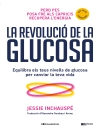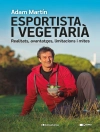Over the last decade, there has been an increasing amount of scholarship focused on race and food inequity. Much of this research is focused on the United States and its densely populated urban centers. Looking deeply into Black women’s roles—economically, environmentally, and socially—in food and agriculture systems in the Caribbean, Africa, and the United States, the contributors address the ways Black women, both now and in the past, have used food as a part of community building and sustenance. They also examine matrilineal food-based education; the importance of Black women’s social, cultural, and familial networks in addressing nutrition and food insecurity; the ways gender intersects with class and race globally when thinking about food; and how women-led science and technology initiatives can be used to create healthier and more just food systems.
Contributors include Agnes Atia Apusigah, Neela Badrie, Kenia-Rosa Campo, Dara Cooper, Kelsey Emard, Claudia J. Ford, Hanna Garth, Shelene Gomes, Veronica Gordon, Wendy-Ann Isaac, Lydia Kwoyiga, Gloria Sanders Mc Cutcheon, Eveline M. F. W. Sawadogo/Compaore, Ashanté M. Reese, Sakiko Shiratori, shakara tyler, and Marquitta Webb.
Sobre o autor
Theresa Rajack-Talley is professor in Pan-African studies at Dalhousie University.












